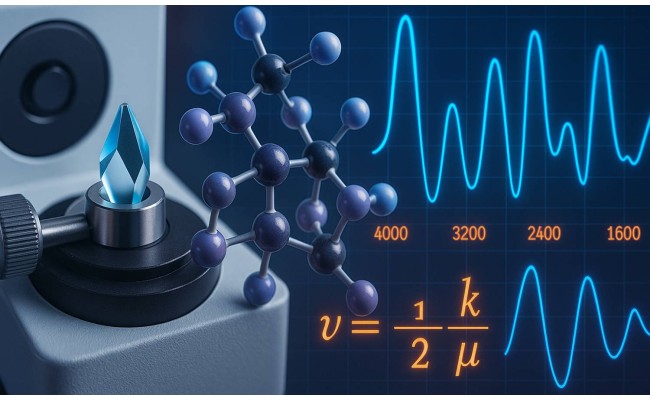- Call: +1 850 633 2663

Advanced FTIR spectroscopy has become a powerful tool for solving complex challenges in modern chemical analysis. From accurate interpretation of overlapping spectra to quantitative analysis of multi-component systems, FTIR enables chemists to extract precise molecular information with speed and confidence. This advanced approach focuses on spectral deconvolution, chemometric modeling, calibration strategies, and validation protocols that meet the demands of high-performance R&D, QA/QC, and troubleshooting in manufacturing environments. With applications across polymer characterization, pharmaceutical analysis, catalyst studies, and material failure investigations, advanced FTIR techniques help ensure product integrity, regulatory compliance, and process optimization. Leverage the full potential of attenuated total reflectance (ATR), grazing angle techniques, time-resolved FTIR, and hyphenated systems like TGA-FTIR or GC-FTIR to unlock critical insights in chemical structures, reaction mechanisms, and degradation pathways. Designed for professionals who demand accuracy and depth, this approach transforms FTIR from a routine tool into a strategic asset for chemical problem-solving and advanced material analysis.
This training isn’t just about learning, it’s about doing. Don’t miss your chance to level up;
1. Go Beyond Routine FTIR: Most chemists use FTIR as a basic tool but this training shows how to unlock its full potential for root cause analysis, contaminant identification, and material failure diagnosis in real industrial scenarios.
2. Eliminate Guesswork in Spectral Interpretation: No more second-guessing peak assignments. You'll gain systematic techniques to resolve overlapping bands, identify functional groups under complex interactions, and interpret mixture spectra with greater clarity.
3. Interpret Complex Spectra with Confidence: From overlapping peaks to hydrogen bonding shifts, gain expert techniques in spectral deconvolution, vibrational coupling, and reaction monitoring that are essential for advanced R&D and formulation work.
4. Make FTIR a Strategic Tool Across Your Workflow: Learn how to integrate FTIR into method validation, kinetic studies, and process troubleshooting—turning routine analysis into actionable insights that impact product quality and regulatory compliance.
This is highly recommended and must have training for chemical industry professionals engaged in diverse application/formulation areas; in particular:
- R&D chemists, formulators, Engineers
- Technical managers
- QA managers
- Engineers, technicians, and supervisors
- Product development teams and R&D managers
0 reviews